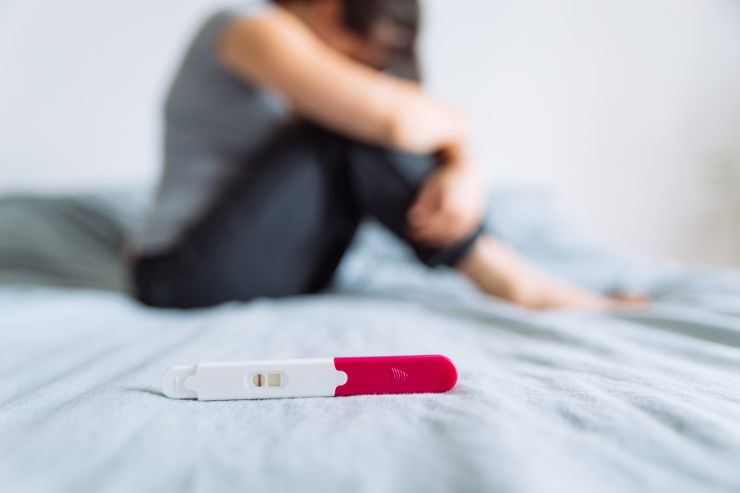If a woman is unable to conceive despite having unprotected sex regularly for a period of one year, it could mean that she is infertile. Are there are other signs of infertility? Here is all about infertility symptoms in women.
It is important for ever individual of childbearing age to know the major infertility symptoms to solve the infertility issue. So, what are the signs you can’t get pregnant, and you may require assistive reproductive technology? Let’s find out.
Symptoms of Infertility in Women
What, according to doctors, are the early signs of infertility?
1. Implantation failure
The main symptom of infertility is the inability to make a baby. If you have been consistently trying to get pregnant for at least 12 months, the underlying cause may be unexplained infertility or something else. So, quickly book an appointment with a reputed gynecologist for a detailed check-up of your entire female reproductive system.
2. Irregular periods
Regular menstruation is the obvious sign that a person’s reproductive health is fine. Naturally, the connection between irregular periods and infertility cannot be denied. So, if you miss your periods sometimes or it happens at odd times, these are alarming signs. As it contributes to infertility, you should not delay your visit to the doctor.
3. Ovulation problems
Every month, one of the ovaries release a mature egg and it should happen at fixed time in your cycle (on the 14th day – for 28-day menstrual cycles). However, ovulation infrequency accounts for a majority of infertility cases around the globe.
What you need to realize here is that the mature egg cannot survive beyond 24 hours and the sperm must do its job within those 24 hours. Now if you have ovulation disorders, how will you track your ovulation and have intercourse when your body’s most fertile?
Some signs of ovulation problems are pain in the abdomen or pelvis, oily skin, acne, depression, and restlessness.
4. Painful intercourse
Can painful periods and infertility be linked? Absolutely yes! Having coitus is a pleasurable experience for adults. Occasionally, you may experience pain during sex if your vagina is not properly lubricated or if you aren’t aroused. But if there is a painful sensation whenever you get intimate with your partner, it cannot be neglected. This condition is termed dyspareunia and there has to be an underlying cause.
Painful intercourse is a clear indicator of infertility. You may have endometriosis, fibroids, or some vaginal infection. Hence, you need to visit a fertility specialist at the earliest.
5. Hormonal imbalance
Hormonal imbalances affecting fertility is not an uncommon occurrence. If the balance of hormones in the body gets disrupted, it can cause infertility in women and male infertility. Furthermore, hormonal imbalances may be responsible for complications at the time of labor.
6. Hair growth in unusual places
Have you suddenly started noticing more hair growth on the chest, the area around the lips, back, face, or arms? Unexplained growth of hair happens in women only when the body ends up producing more testosterone than is necessary. When your body is busy overproducing a male reproductive hormone, it is natural to have fertility problems. So, this too is among the infertility symptoms in women.
7. Pale and thin menstrual blood
Premature menopause is one of the age-related infertility signs. If your menstrual cycles have become shorter or the blood is too less, you may also have an inability to get pregnant. Sometimes, this is your body’s way of letting you know that you have entered perimenopause or early menopause.
8. Obesity
While obesity is not a side effect of infertility, there is a link between infertility and obesity. When there is excessive weight gain, the fertility levels of the person also go down. Similarly, being underweight can also stand in your way of getting pregnant. So, if you have been trying to conceive for some time now and you also happen to be an obese person, note that obesity is reducing your chances of becoming a mother.
Causes of Female Infertility
Now that you have learnt the infertility symptoms in women, have a look at the major risk factors:
- Polycystic ovary syndrome is a common cause of infertility.
- Women who underwent cancer treatment in the past can have low levels of infertility as cancer treatments take a toll on the body.
- Age 40 or more can have issues to conceive naturally as the fertility levels decline drastically after the late 30s.
- Primary ovarian insufficiency
- Endometriosis and uterine fibroids may cause infertility
- Sexually transmitted infections such as chlamydia
- The entry of environmental toxins into the body
- Blocked fallopian tubes don’t let the eggs reach the uterus for implantation. Hence, watch out for symptoms of blocked fallopian tubes.
- Poor lifestyle choices like smoking, having processed food daily, not exercising, consuming alcohol frequently, and not having regular sleep cycles affect sperm quality and egg quality.
Fertility Tests for Women: Infertility Diagnosis
The above-mentioned signs and symptoms of infertility might give you some idea that you need to see your gynecologist. However, to know the exact cause that’s making pregnancy difficult for you, both you and your partner should go for a check-up.
For evaluating infertility, imaging tests, ovulation tests, and blood tests are performed. The imaging tests are pelvic ultrasound and hysterosalpingography and these give a vivid picture of the uterus and fallopian tubes. Doctors also check the ovarian reserve to assess the quality and quantity of eggs.
After all these, begins the process of treating infertility. There are various assisted reproductive technologies and lifestyle modifications that you can opt for.
Tips to Improve Female Fertility
To improve female or male fertility naturally, eat lots of fresh fruits, veggies, and lean meat. Keep your body adequately hydrated. Practice stress management techniques (like meditation and yoga) to keep stress at bay. Lastly, maintain a healthy weight and sleep 7-8 hours at night to notice a natural increase in fertility levels and your overall well-being.
Parting Thoughts
If you have recently learned that you are infertile, you must not lose hope. Infertility in men and women is a common problem these days for infertile couples trying to get pregnant. However, after identifying the cause of infertility and receiving advanced fertility treatment, many women become pregnant. So, you too can deliver a healthy baby in the future with the help of in vitro fertilization or some other advanced infertility treatment.
Frequently Asked Questions I Infertility FAQs
Q. What are the warning signs of infertility in women?
Some usual warning signs of infertility in women are painful intercourse, low libido, hair growth in the chin, neck, arms, and back, irregular menstrual cycles, and irregular ovulation.
Q. When should you consult a doctor about fertility issues?
If you are keen to become a parent and you have been having unprotected sex for at least a year, consulting a doctor makes sense. Either you or your partner could be infertile.








